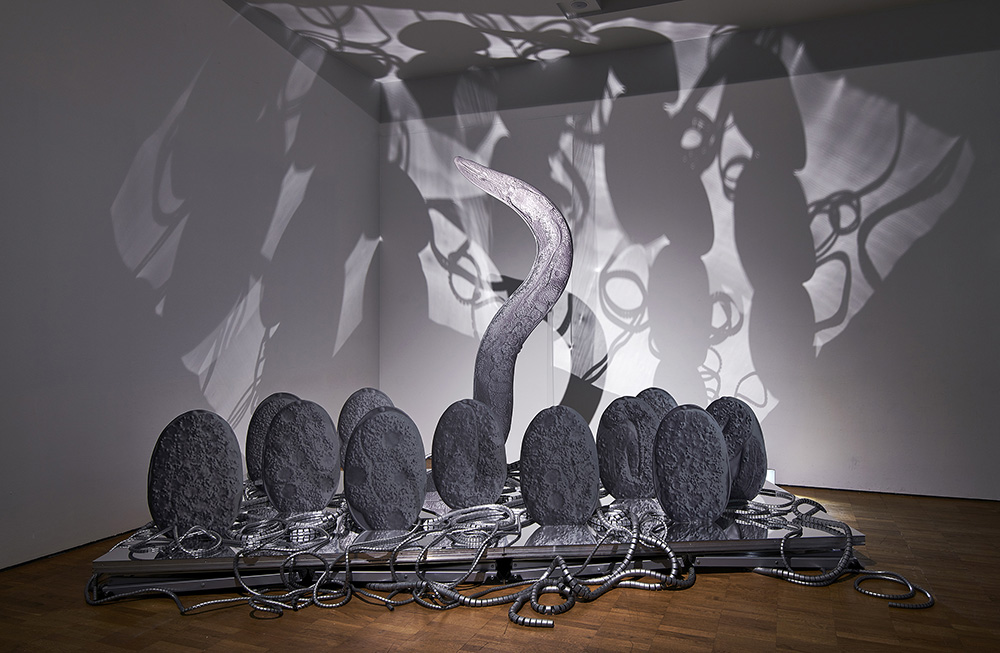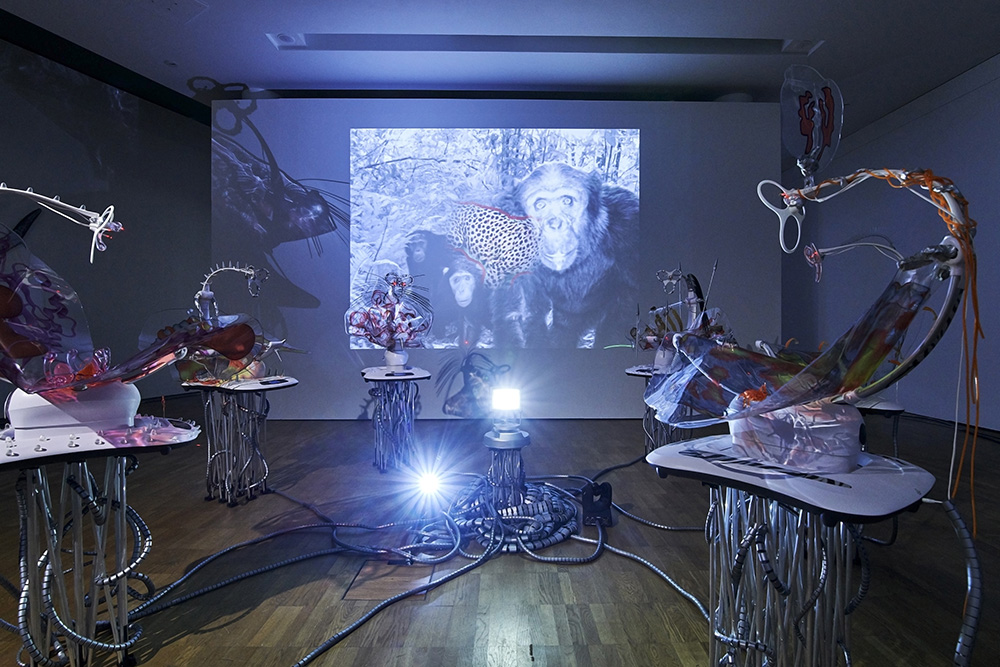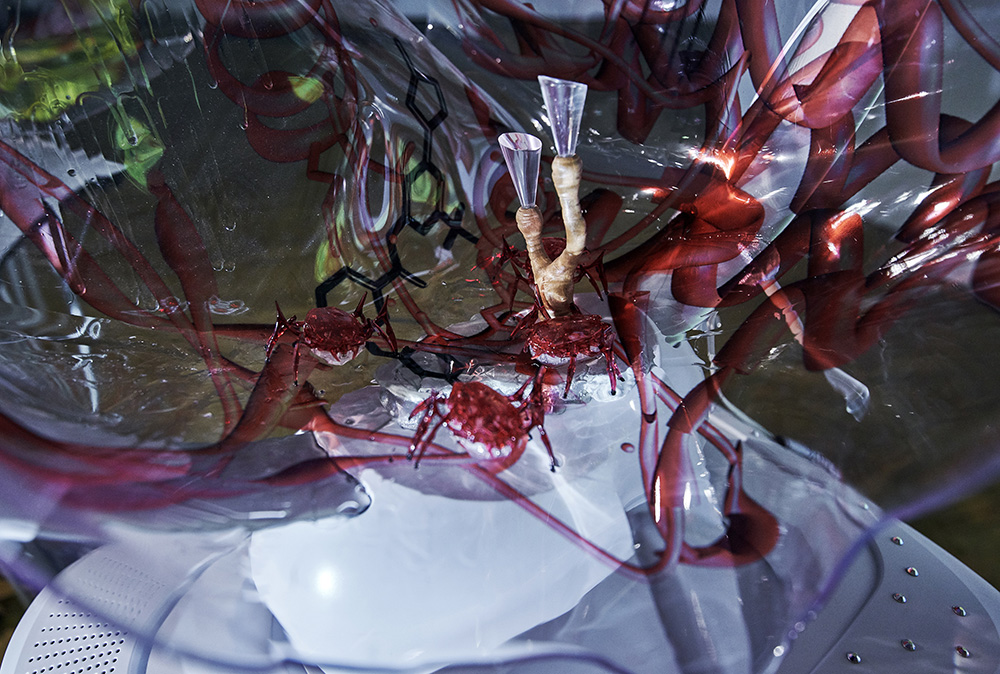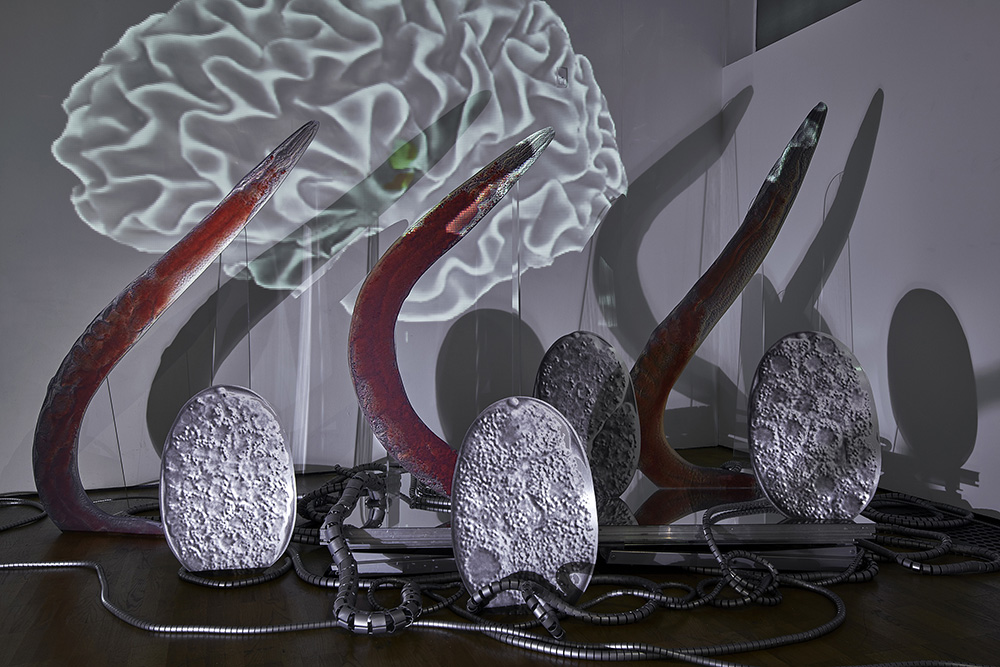ART-PRESENTATION: Katja Novitskova-Invasion Curves
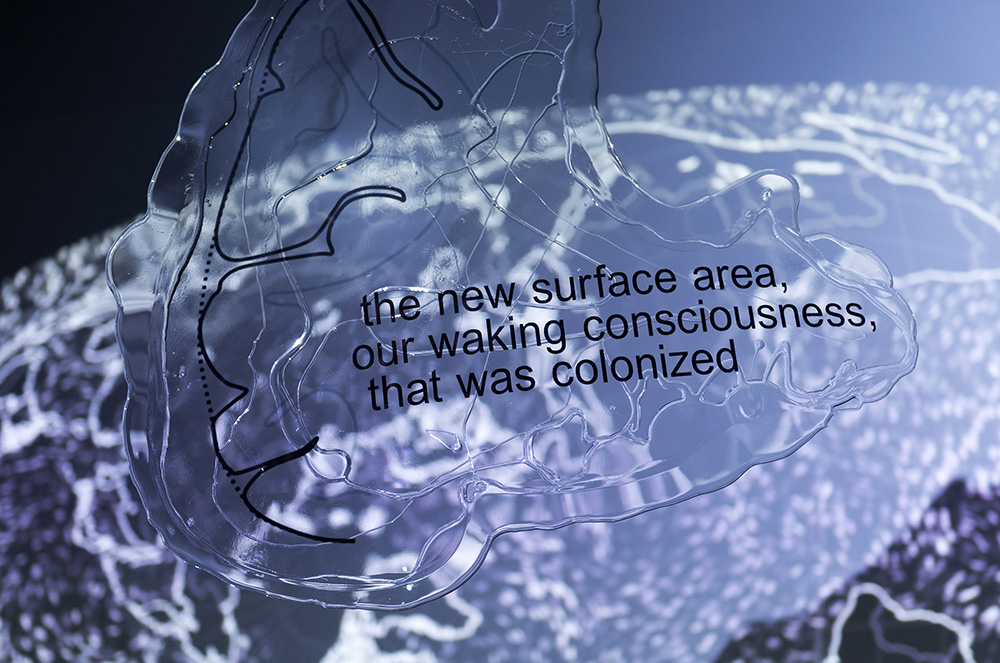 Katja Novitskova’s oeuvre is located at the crossroads of visual culture, digital technologies and speculative fiction: she is interested in how the rapidly developing planet is increasingly more dependent on various data flows, which intermediate, preserve and alter the environment that surrounds us in visual form. The display is an immersive environment interpreting and looking back at the current day from the future, where the world as we know it is no longer recognisable.
Katja Novitskova’s oeuvre is located at the crossroads of visual culture, digital technologies and speculative fiction: she is interested in how the rapidly developing planet is increasingly more dependent on various data flows, which intermediate, preserve and alter the environment that surrounds us in visual form. The display is an immersive environment interpreting and looking back at the current day from the future, where the world as we know it is no longer recognisable.
By Dimitris Lempesis
Photo: Whitechapel Gallery Archive
Katja Novitskova presents at Whitechapel Gallery an immersive environment offering an unsettling vision of the future, entitled “Invasion Curves”. Originally from Tallinn, Katja Novitskova first became an artist in Berlin and Amsterdam. She is not only the most outstanding artist linked to the Post-Internet movement in Estonia, but also one of the key artists at its origins worldwide. Nowadays, new digital images, in their perpetual circulation between online and offline reality, are merciful and reviving in support of this system, which reconfigures our visual imagery following the aesthetic conduct that is promoted by the Internet. We have reached our full maturity as the first digital natives to produce unreleased images for the general public. This phenomenon is the heir of digital aesthetics of merely commercial derivation. Novitskova’s work focuses on issues of technology, evolutionary processes and ecological realities. It explores the materiality and circulation of images – how they are used, recycled and re-contextualised. She is known for her dramatic, cut-out images of animals, presented alongside imagery drawn from financial and scientific sources. Using elements from “If only you could see what I’ve seen with your eyes”, her acclaimed presentation at the Estonian Pavilion at the Venice Biennale, 2017. It title originates from the post-apocalyptic film “Blade Runner” (1982), in a scene from the film, one of the replicants, a bio-engineered robot named Roy Batty attempts to track down his creator and along the way, encounters the man who created his eyes. The author marvels at his creation as Batty remarks, “if only you could see what I’ve seen with your eyes”. In this statement the replicant acknowledges the eye maker built his eyes but claims authorship for himself based on what he has witnessed separate from the creator. This scene frames Novitskova’s exhibition through the symbolic role of spectator versus the role of the creator, the creation takes on a life beyond what was originally intended. The exhibition “Invasion Curves” features sculptural cut-out figures alongside humanlike baby-rockers, mobiles and projections. The work imagines a landscape overcome by a “biotic crisis” ecologically impacted by humans, where imaging and technology are used in a process of mapping the exploitation of life. Her installation show images captured by scanners, cameras and satellites or rendered by image processing algorithms, displayed as vivid sculptures, and projections. Worms defy gravity and genetically modified life forms hatch from eggs among a tangled undergrowth of cables. At the heart of the exhibition, the modified baby-rockers gyrate eerily. Surrounding this unsettling landscape, floating resin clouds are inscribed with phrases speculating on the impact of global data on our consciousness and the environment. Growth curves, derived from corporate culture, echoed in the forms of the worms and cables, offer a wry comment on humanity’s drive towards advancement in the name of profit. Throughout, the human body is eerily absent from the installation, replaced by stand-ins who attempt to lull the viewer into a false sense of security in the hands of technology.
Info: Curators: Emily Butler, Mahera and Mohammad Abu Ghazaleh, Assistant Curator: Cameron Foote, Whitechapel Gallery, 77-82 Whitechapel High Street, London, Duration: 27/6-2/9/1/, Days & Hours: Tue-Wed & Fri-Sun 11:00-18:00, Thu 11:00-21:00, www.whitechapelgallery.org
